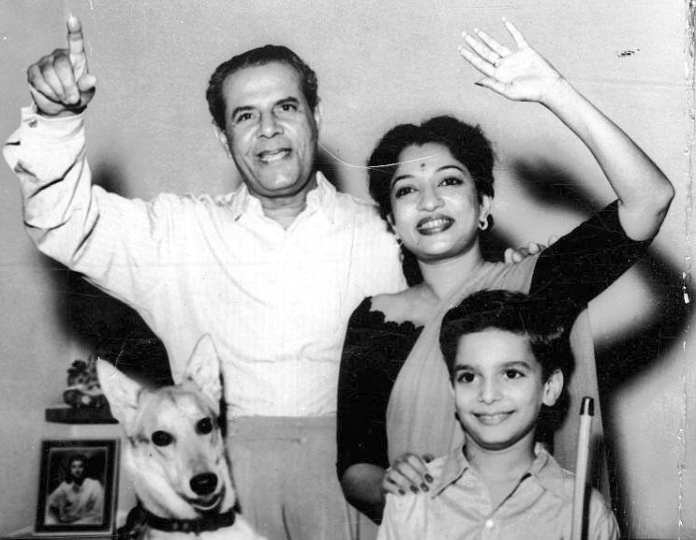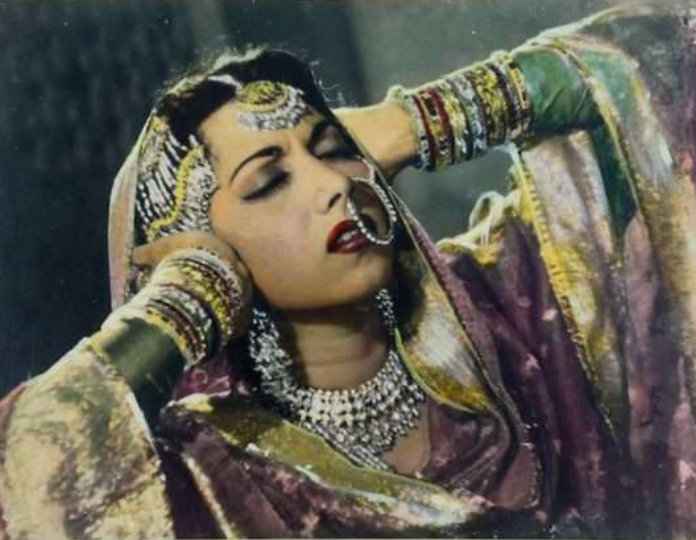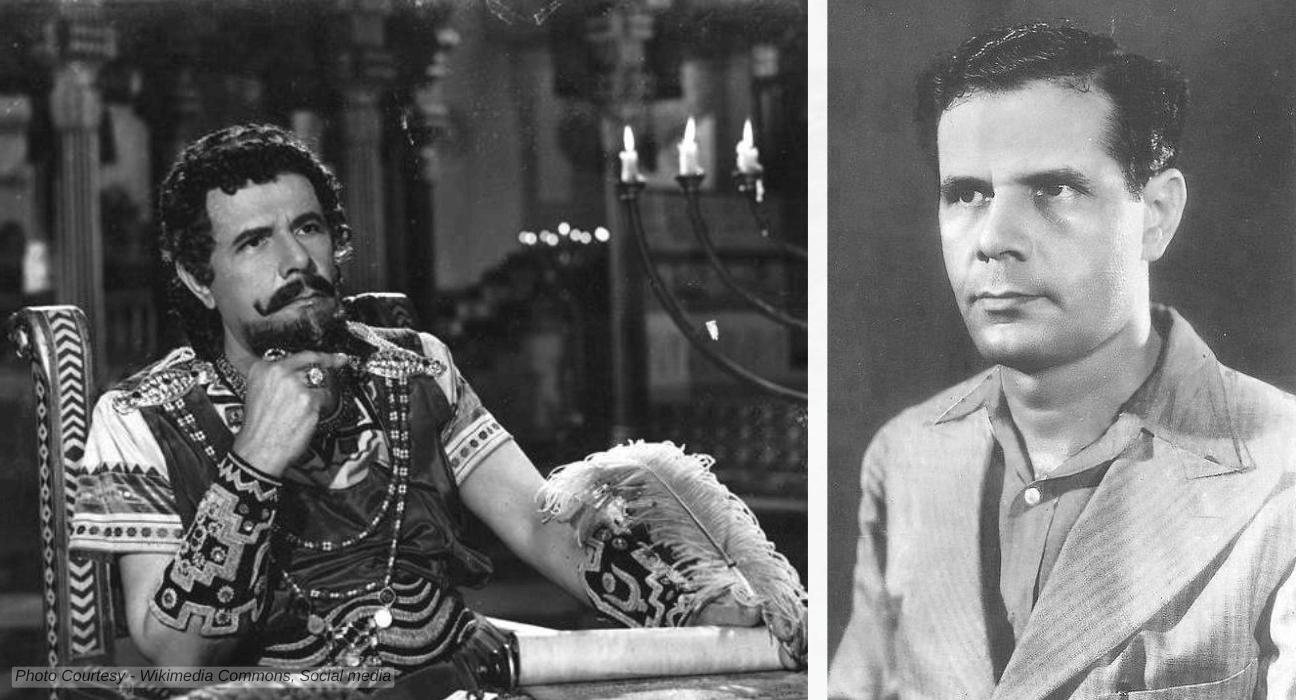Sohrab Modi, “Cecil B. DeMille of the Indian film industry”, stands as a revered figure who is known for his “larger than life films” with grand sets and grander cast. His films are distinguished by their epic scale and by his cinematic showmanship as well as their social commentary.
Tumhare hi liye paida hue duniya ke nazare … chamakte hai tumhari roshni se chand aur taare … tumhara gham hai gham, auron ka gham khawab-o-kahani hai … tumhara khoon hai khoon, hamara khoon pani hai
Yahudi (1958)
Early Life and Career
Born on November 2, 1897 in Bombay into a Parsi family, his father father was an Indian civil servant, he spent his childhood in Rampur, Uttar Pradesh where he developed a liking for Urdu.
Sohrab began his career as a Parsi theatre actor and earned reputation as a Shakespearean actor, travelling throughout India with his brother’s theatrical company. He set up the Stage Film Company in 1935 and made Khoon Ka Khoon (1935) & Said-e-Havas (1936), adaptations of Shakespeare’s Hamlet & King John.
He launched Minerva Movietone in 1936, where he started making films, often on socially relevant topics like alcoholism(Meetha Zaher-1938-), divorce(Talaq -1938) etc. or on historical stories. Modi also explored the then taboo themes as illicit passion (Jailor -1938) and incest (Bharosa -1940)
The King of Larger Than Life Cinema
Chandra Mohan and Naseem Banu starred in Pukar (1939), which was the story of Mughal Emperor Jehangir’s fair sense of justice. Then comes Modi’s greatest film, Sikander (1941), which immortalized Prithviraj Kapoor playing the title role; Modi himself plays the role of Porus. The movie was rated by a British writer as “well up to the standard of that old masterpiece The Birth of a Nation.” Its dramatic, declamatory dialogue gave both Prithviraj Kapoor and Sohrab Modi free rein to their histrionic proclivities. Due to its patriotic tone and onset of Civil Disobedience Movement, the film gtt banned in some parts of India.

In 1943 comes Prithvi Vallabh which was based on K.M. Munshi’s novel, film showcased the confrontation of Modi as Hero King Munj and Durga Khote as queen Mrinalvati who tries to humiliate him publicly but then falls in love with him.
His other films in this era were
- Parakh (1944) starring his future wife Mehtab
- Ek Din Ka Sultan (1945)
- Manjhdhar (1947)
- Narasinha Avatar (1949)
- Daulat (1949)
- Sheesh Mahal (1950).
Sohrab Modi – The Pioneer
In 1952, Modi came up with “Jhansi Ki Rani,” India’s first technicolor film, for which Modi had technicians flown in from Hollywood. Mehtab starred as the queen of Jhansi, who took up arms against the British during the Mutiny of 1857, with Modi playing the role of the Rajguru, her chief advisor.


Mirza Ghalib starring Bharat Bhushan and Suraiya, comes in 1954. The film won the President’s Gold Medal for Best Feature Film of 1954. Mirza Ghalib also saw Suraiya’s finest dramatic performance as she embodied the role of the married Ghalib’s lover, a courtesan. It has beautiful ghazals like “Aah ko Chaihiye Ek Umar,” “Nuktacheen Hai Gham-e-Dil,” “Dil-e-Nadaan Tujhe Hua Kya Hai,” “Yeh Na Thi Humari Kismet,”
His last few films were Kundan (1955), Raj Hath (1956), Jailor (1958), Meri Biwi Mere Bachche (1960), Nausherwan-E-Adil (1957) and Samay Bada Balwan (1969).
Sohrab Modi as an actor were known for his thunderous voice and his dramatic and powerful dialogue delivery. People still remembered his dialogues like
“Doob maro is insaaf par, aasun bahao is kanoon par … joh kamzoron ke liye talwar ki dhaar, aur zabardast ke liye bagho-e-bahar hai … joh apne liye nagme-e-saaz, aur hamare liye maut ki awaaz hai”
Yahudi (1958)
Death and Legacy
Sohrab Modi received the Dadasaheb Phalke Award in 1980. He was the tenth recipient of the award. In his latter days he was dignosed with cancer of the bone marrow. The legend succumbed to the disease on 28 January 1984 at the age of 86.
Sohrab Modi’s name remains synonymous with cinematic grandeur and dignity. As a pioneer in the film industry, he contributed significantly to the craft of filmmaking both artistically and technically. He introduced new narrative techniques, adapts elements of theater in films, and collaborate with foreign technicians. His life and works echo the sincerity, dedication and love for the craft, qualities often scarce in today’s cinematic landscape.
Sohrab Modi on IMDB














Leave feedback about this